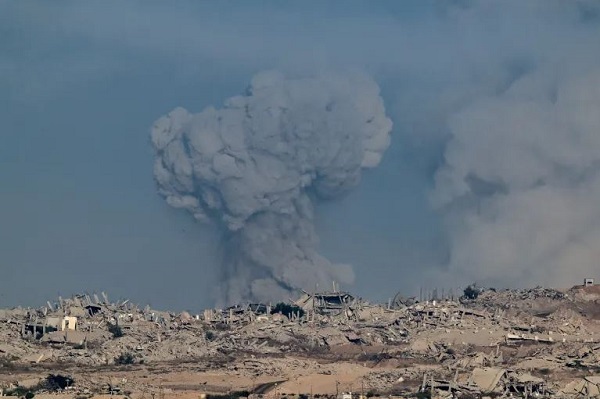Exposing the Hidden Agenda: The Zionist Project

The Israel-Palestine conflict isn’t merely a localized feud fought within limited boundaries. At its core, it’s a reflection of a broader political concept, known as the Zionist Project. This ambitious project, led primarily by the United States and supported by its Western allies, laid the groundwork for Israel’s formation and subsequent policies towards Palestine.
Zionism’s manifestation led to the widespread occupation of Palestinian territories and the displacement of their original inhabitants. It is worth noting that whenever the stability of this intricate project was threatened, key protagonists like the U.S., UK, and Europe were quick to take action.
On October 19th, the U.S. President visited Israel. He was quickly followed by the UK’s Prime Minister and the President of France. Their visits aimed to bolster the Israeli regime, providing support and helping the foundation of the regime, which was indeed in a state of wreckage and mayhem, often referred to as the “darkest hours” of Israel.
Just like in the Middle East, Western powers have shown interest in Ukraine. Although there seems to be less urgency than their response in West Asia, it is indicative of their varying project prioritization. Evidently, their goal in Ukraine is to undermine Russia and to reduce its geographical expanse. In both these projects, the focus is not on the welfare of the people but on the advancement of their own strategic projects.
This unfortunate perception of geopolitical exploitation is brutally echoed by Ukrainian politician Oleg Soskin. On his YouTube channel, he shared the perspective held by Western politicians - Ukraine, merely seen as a battlefield; its men, nothing more than expendable pawns in a deadly game of war, and its women tragically viewed as objects of servitude in other countries.
Opposing this Western-led potency is the “resistance doctrine” ordained by Imam Khomeini following the Iranian Islamic Revolution. Evolving with time, today, the resistance axis extends its influence far beyond, as part of a wider network spreading across Lebanon, Palestine, Yemen, and Iraq.
Such expansion shines a spotlight on the underlying objective of the Zionist project—establishing a steadfast Western base in the Middle East and encapsulating the spreading influence of Islam. This foreign-instigated project surpasses the goal of mere control; its implications cast a wider net, providing broad access to regional energy resources and inducing a shift in the region’s religious dynamics.
The project of Zionism is not drafted to only wipe Palestine off the map, but it is planned to sweep across the entirety of the Middle East. This reality resonates prominently in former US President Biden’s acknowledgment of Israel’s necessity, signifying a clear rise in the importance of the Zionist project among the Western powers. He said, “Well, the truth of the matter is, if there weren’t an Israel, we’d have to invent one.” And he continues by repeating, “You don’t have to be a Jew to be a Zionist. You don’t have to be a Jew to be a Zionist.”
Currently, the significance of the Zionist project has drastically increased for Western politicians compared to the time when it was first imposed in the Middle East by the West. More Muslim nations are seeking independence now and no longer lean towards the West. This change is prominent, especially with Iran’s support, causing these nations to grow significantly.
Summarily, the external imposition of the Zionist project has spurred the growth of public organizations like Hamas, signifying growing resistance across the region. This unfolding political drama in West Asia heralds a future where resistance movements may become more powerful, alliances more diverse, and global politics more complex. The continual monitoring and understanding of these shifts will be vital to navigate the future of the region.
By Jalaleddin Fanaei
The views and opinions expressed in this article are solely those of the author and do not necessarily reflect the views of International Quran News Agency.



